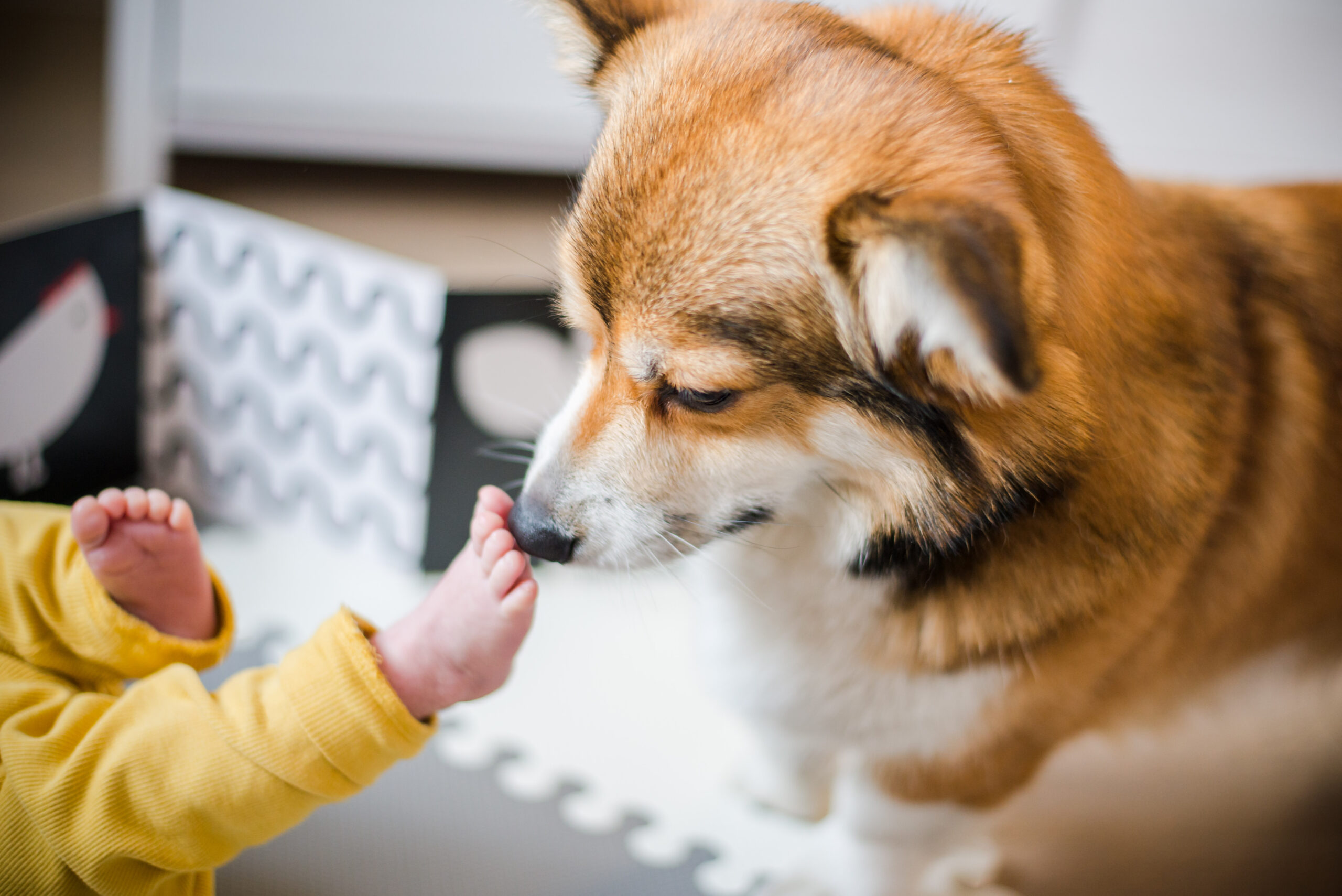- July 21, 2022
- No Comment
- 6 minutes read
Study Shows Dogs Detect COVID-19 Infections Better Than PCR Tests – American Kennel Club

When you need to get tested for COVID-19, what would you rather have: a swab pushed deep into your left and right nostrils or a friendly sniff from a gentle dog? Recent research suggests that a dog’s incredible nose may be one of the best answers to early detection of COVID-19 infection in humans.
A group of French researchers associated with the hospital Assistance Publique-Hôpitaux de Paris exposed trained scent-detection dogs to sweat samples from 335 people, and the dogs’ accuracy rate for detecting COVID was phenomenal. The dogs were not only more accurate than antigen tests at detecting the virus in infected people, but they were also more accurate in detecting the virus in those who were not yet having symptoms.
Here are some of the major findings from the study:
The dogs who participated in the French study were previously trained to detect certain odors, working for fire departments and for the United Arab Emirates Ministry of the Interior. These scent-detection dogs have learned to sniff out drugs, explosives, dead bodies, and live suspects. But it took about three weeks, using toys as a positive reinforcement tool, to teach these dogs to identify COVID-19 infections.
Once the dogs were trained, human participants were asked to place sterile compresses under their arms, and hospital staff collected the sweat samples. The researchers then placed the sweat swabs inside of cones, so the dogs wouldn’t come into direct contact with samples that might be infectious
At least two dogs sniffed each cone. When a dog detected a positive COVID-19 sample, they touched the side of the cone with his mouth.
Dogs learn about the world around them through their noses. Compared to humans, who have about 5 million scent receptors, dogs have around 100 million, and even more for some of the tracking breeds, like Bloodhounds who have 300 million. As a result, dogs can detect smells in parts per trillion. One part per trillion is the equivalent to a single drop in 18 million gallons of water or about 1 second in 32,000 years.
In a Finnish study of canine COVID detection at the Helsinki-Vantaa International Airport, researchers suggested that trained scent-detection dogs may actually be able to detect volatile organic compounds released during different metabolic processes, including bacterial, viral, and parasitic infections.
To help them process the infinite number of smells they detect, a dog’s brain has a larger olfactory cortex than ours do—about 40 times larger—with about one-eighth of a dog’s brain dedicated to interpreting smells. Dogs rely on their sense of smell to learn the characteristics of other dogs. A good whiff of another dog’s urine can give them information about the sex, health, diet, age, and status, almost everything but the other dog’s microchip number.

“Dogs’ greater number of scent receptors allow them to detect subtle odors that humans can’t smell,” says Dr. Jerry Klein, AKC Chief Veterinary Officer. “They are also able to detect certain complexities in odors that we can’t. That’s why researchers are using or trying to train dogs to detect and alert to a variety of diseases, such as malaria, diabetes, prostate cancer, breast cancer, and Parkinson’s disease.”
If you suspect you may have COVID, you, unfortunately, can’t rely on your pooch to give you the answer. It can take a professional trainer five or six weeks or more to teach the right dog to detect and alert to COVID-19.
Early identification of new strains of COVID-19 and infected individuals is critical to the prevention and spread of current and future viruses. It’s promising that researchers are finding dogs to be as reliable as laboratory tests for detecting COVID-19 cases, and they can provide immediate results.
But don’t be surprised if you’re in an airport, concert venue, or other public settings—and a friendly canine comes by to give you the once-over.
The AKC is here to help owners with questions and concerns about COVID-19 and dogs. Find answers to your questions, plus at-home activity ideas, training tips, educational resources, and more on our Coping With COVID-19 hub.
AKC is a participant in affiliate advertising programs designed to provide a means for sites to earn advertising fees by advertising and linking to akc.org. If you purchase a product through this article, we may receive a portion of the sale.

